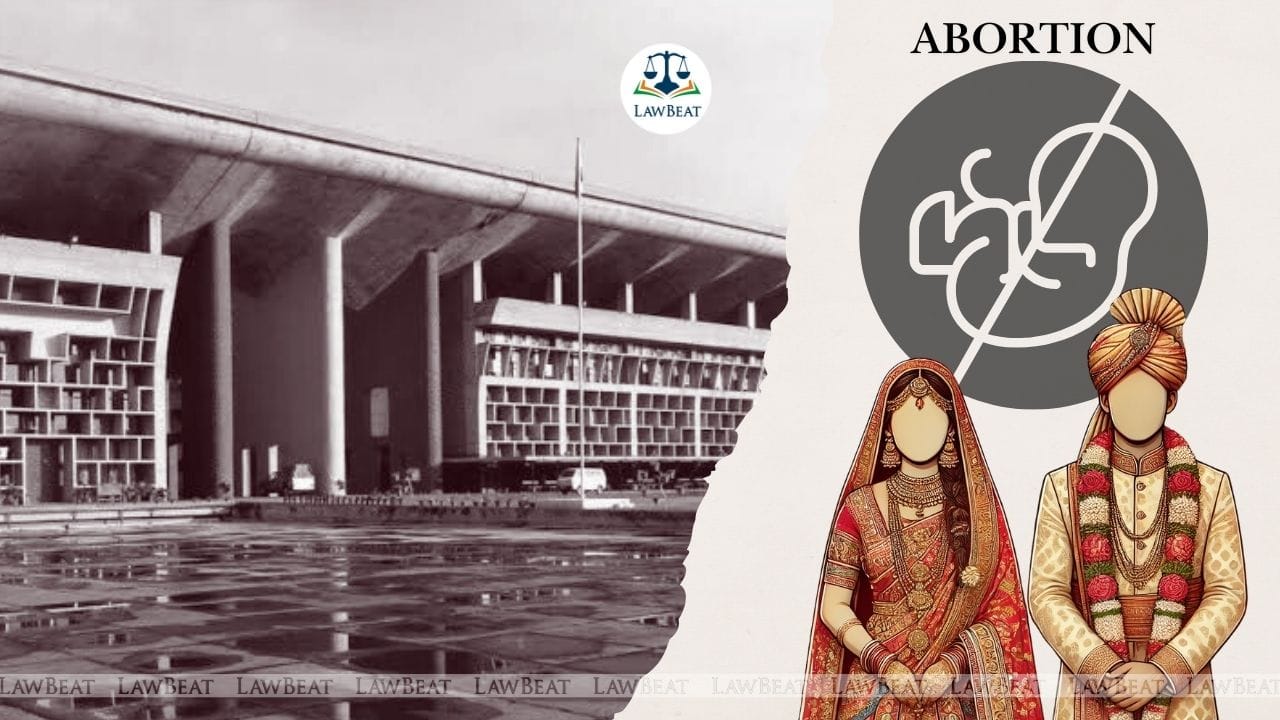Wife Living Separately Without Obtaining Divorce Can Terminate Pregnancy Without Husband’s Consent: Punjab & Haryana HC

The Punjab & Haryana High Court has held that a woman living separately from her husband without obtaining a divorce can terminate her pregnancy without the husband's consent under the Medical Termination of Pregnancy (MTP) Act.
The court, presided over by Justice Kuldeep Tiwari, delivered the judgment, while relying on the Supreme Court's interpretation of Rule 3B(c) of the MTP Rules, 2003, in X v. Principal Secretary, Health and Family Welfare Department & Anr.
The petitioner woman approached the court, seeking directions to terminate her pregnancy, which, as of January 11, was over 18 weeks and 5 days. She alleged domestic violence, cruelty by in-laws over dowry, and maltreatment by her husband, who allegedly attempted to record intimate moments with a hidden camera. Unable to continue living in such circumstances, the petitioner started living separately and argued that continuing the pregnancy would gravely affect her physical and mental health. The petitioner contended that her pregnancy was medically terminable under the MTP Act and that requiring her husband's consent was unwarranted given her separation.
The court considered the central question: “whether in the given facts and circumstances, where although the petitioner has departed from the company of her husband on account of domestic violence but not legally divorced, yet she is eligible for termination of pregnancy without consent of her husband on the basis of change of marital status?”
Answering the question, the court underscored that the expression “change of marital status” should be interpreted purposively rather than restrictively, clarifying that the terms “widowhood” and “divorce” are not exhaustive of the broader category they represent. The court observed: “giving a purposive interpretation to the expression “change of marital status”, this Court can safely conclude that although the petitioner does not fall within the purview of “widow or divorcee”, however, since she has decided to live separately from the company of her husband without legally obtaining divorce, hence she is eligible for termination of pregnancy.”
The court pointed out that under the MTP Amendment Act, 2021, Explanation I presumes that the anguish caused by a pregnancy (up to twenty weeks) resulting from the failure of a contraceptive used by “any woman or her partner” constitutes grave injury to the woman’s mental health.
The court cited Suchita Srivastava v. Chandigarh Administration to reiterate that the statutory right of a woman to undergo termination of pregnancy under the MTP Act is relatable to the constitutional right to make reproductive choices under Article 21 of the Constitution. It further emphasised that, “The right to decisional autonomy also means that women may choose the course of their lives. Besides physical consequences, unwanted pregnancies which women are forced to carry to term may have cascading effects for the rest of her life by interrupting her education, her career, or affecting her mental well- being.”
Also laying emphasis on the precedent set forth by a Co-ordinate Bench of the High Court in Amandeep Kaur Vs. The Postgraduate Institute of Medical Education and Research, Chandigarh, the court stated, “Forced into an unwanted pregnancy, a woman is likely to experience significant physical and emotional challenges. Dealing with the aftermath of such a pregnancy, even after childbirth, places an extra burden on the petitioner, affecting her ability to pursue other opportunities in life, such as employment and contributing to her family's income.”
Allowing the plea, the court directed the petitioner to approach the Chief Medical Officer (CMO) concerned within three days. The CMO was instructed to expedite the medical termination of pregnancy per the MTP Act and Rules.
Cause Title: XXX v. Fortis Hospital, Mohali and Others
Appearances: Advocate Ketan Chopra for the petitioner; Deputy Advocate General, Punjab, Pardeep Bajaj, for the State.
